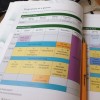
This week sees the ‘world’ congress of palliative care research taking place in Lleida, Spain. I am not attending, though it is good to keep up with the event by reading the abstracts that have been published in the June edition of Palliative Medicine and by following #EAPC2014. Actually, I have grown a bit sceptical about the value of these events. Of course, they can be fun to attend, an opportunity to meet people (though postgraduate students often remark how aloof the senior figures are) and a chance to pick up on changes in the terrain of enquiry. Recently I have concluded that much of this can be done from the computer – thereby reducing carbon footprint, costs, time wasted in tedious opening and closing ceremonies and the affront to the senses caused by the pervasive presence of big pharma.
So the question asked in their new paper by Sarike Shanchanale and Alice Brown on the fate of abstracts presented at a palliative care conference is interesting. What happens to all those abstracts so carefully crafted by their authors and delivered through posters and oral presentations?
After exclusions of invited presentations and general froth, the authors identified 538 Aachen abstracts for their analysis – 140 from oral presentations and 398 from posters. Of these a total of 230 (43%) were subsequently published (in a 36 month period) in a peer reviewed journal.This apparently compares well with other medical specialties. In the top five countries, abstracts from Norway had by far the best chance of publication (68.9%) followed by Netherlands (46.8%), Great Britain (42.9), Germany (39.4) and Italy (18.7). Bear in mind this was not a ‘research’ conference as such -it was the more broadly focussed general EAPC Congress. It would be good if the authors could take a look at the EAPC research meeting held in Venice in 2006, to see if a different outcome prevailed.
But on the whole the message is clear. Work hard while you are at a conference and soak up as much knowledge as you can. Apart from the abstracts in the conference programme, almost 60% of the content will never be seen again.
David Clark
* On checking the programme from my archives I found I had seven abstracts at the meeting. Two of these were linked to subsequent full monograph publications – and would not therefore have been picked up in Sarike and Alice’s analysis, which focussed only on peer reviewed journals.
Thanks to Kate Jackson for the picture of the conference programme at Lleida, which came from a tweet..


…」「それこそ思い上がりってもんだ。てめえは何様だと思ってる。一日くらい犠牲にしてもバチが当たるまいってか……甘えるんじゃねぇ。嫌いならどこまでも押し通すんだな」「よしなさいよ。ハンコがどこかで盗み聞きしてるかも知れないじゃない」亜里沙は怯《おび》え